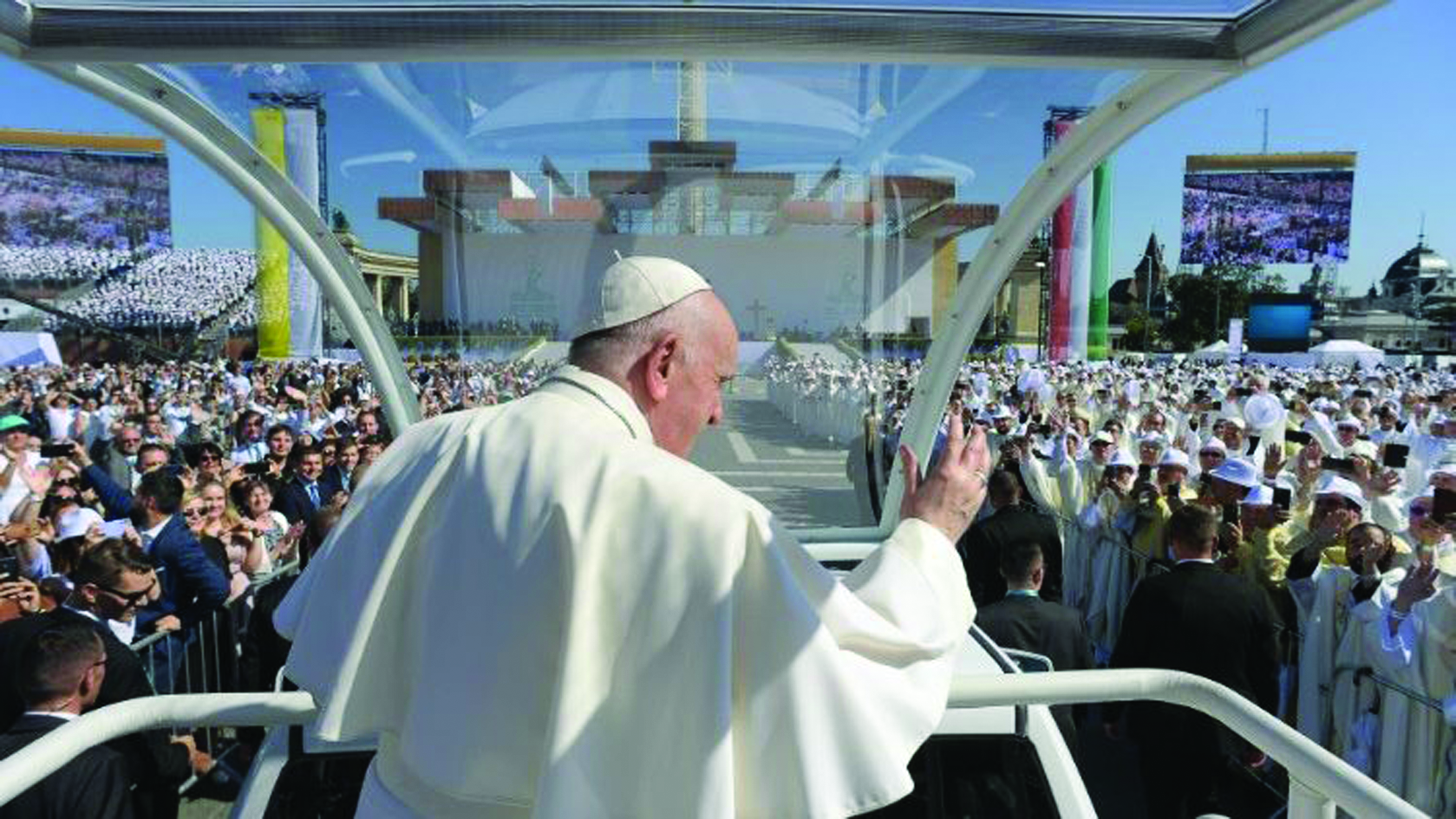By what looks like a providential coincidence, Sull’aereo di Papa Benedetto (Flying with Pope Benedict XVI), a book collecting the German Pope’s conversations with journalists during his 24 international apostolic journeys, was published at the end of his pontificate, during the vacancy of the Holy See in March. From Benedict XVI’s first journey to his homeland for the 20th World Youth Day in Cologne to his pilgrimage to Lebanon last September, the book provides the reader with hints for reflection on Benedict XVI’s pontificate. Published by the Vatican Publishing House, the book was edited by Angela Ambrogetti, a Vatican analyst of great competence, well known to the audience of Vatican Radio for her programs on the Pope and the activities of the Church and the Holy See, and to the readers of this magazine. A seasoned reporter, Ambrogetti here gives us a book featuring the complete, unabridged collection of Benedict XVI’s conversations with the press on the aircraft which took him across the world during the years of his pontificate. This book is well matched with the book by the same author entitled Compagni di viaggio. Interviste con Giovanni Paolo II (Fellow Travelers: Interviews with John Paul II). A comparison of these two books shows continuities and differences, in terms of the papal magisterium, between these two great Popes.
First, we note John Paul II’s decision and Benedict XVI’s willingness to continue the practice of meeting the world press at the start of each apostolic journey. Drawing on the vast documentation of Vatican Radio and the website of Vatican City, two treasuries whose content is waiting to be used to the greatest advantage, Ambrogetti leads the reader to the discovery of an aspect of papal teaching sometimes overlooked because of its extemporaneous nature. Karol Wojtyła enjoyed impromptu speaking with answers meant for effect, but always to the point. Under Benedict XVI, this practice became more systematized. As Father Federico Lombardi, director of the Vatican Press Office, points out in the introduction to the book, “The communication method was refined to allow all journalists – not only those in the front rows – female reporters in particular, to put their questions to the Pope directly.”
Second, a more systematic approach met the need of the theologian Pope, accustomed to analytical reasoning, to give more meditated answers. This made it possible to bring questions together under a limited number of topics and to concentrate them on the specific reasons for the apostolic journey.
“The Holy Father’s extraordinary ability to expound his thought clearly and systematically,” says Lombardi, “enables him, in 10 or 15 minutes, to turn a conversation into a fairly exhaustive illustration of the reasons for his journey, his attitude in setting out on it, the challenges awaiting him, etc. It is, in other words, an introduction to the journey supplied by the Pope himself.” This does not mean that the book features pedantic lectures addressed to insiders alone.
Preceded by an easy-to-read introduction setting each journey in its pastoral and historical context, each report relates the Pope’s words to the journalist asking a question. The author reports the full name of each interviewer when this is possible. On more than one occasion, in addition to supplying brief analyses of the Church’s present situation (from the new evangelization to the pedophile priest scandal, from the world economic crisis to the Church’s relation with the followers of Archbishop Marcel Lefebvre) Benedict XVI takes the opportunity to reveal some interesting aspects of his private life.
As Archbishop Georg Gänswein, Prefect of the Pontifical Household and personal secretary to the Pope, writes in the preface: “These interviews provide a key to the interpretation of the Holy Father’s speeches during his journeys to several countries. Also, they reveal quite a lot about his personality, which shows a side of him that is not so well known. More than his speeches or homilies, these interviews show, not only the intellectual, but also the man. Benedict XVI enjoys being interviewed, as he is a courageous man who is not afraid of direct confrontation. He speaks freely, without any fear. If anyone asks him a question, the Holy Father answers it with frankness. The depth of his thinking and teaching is like a very deep sea of which only the surface is seen sometimes.”






Facebook Comments